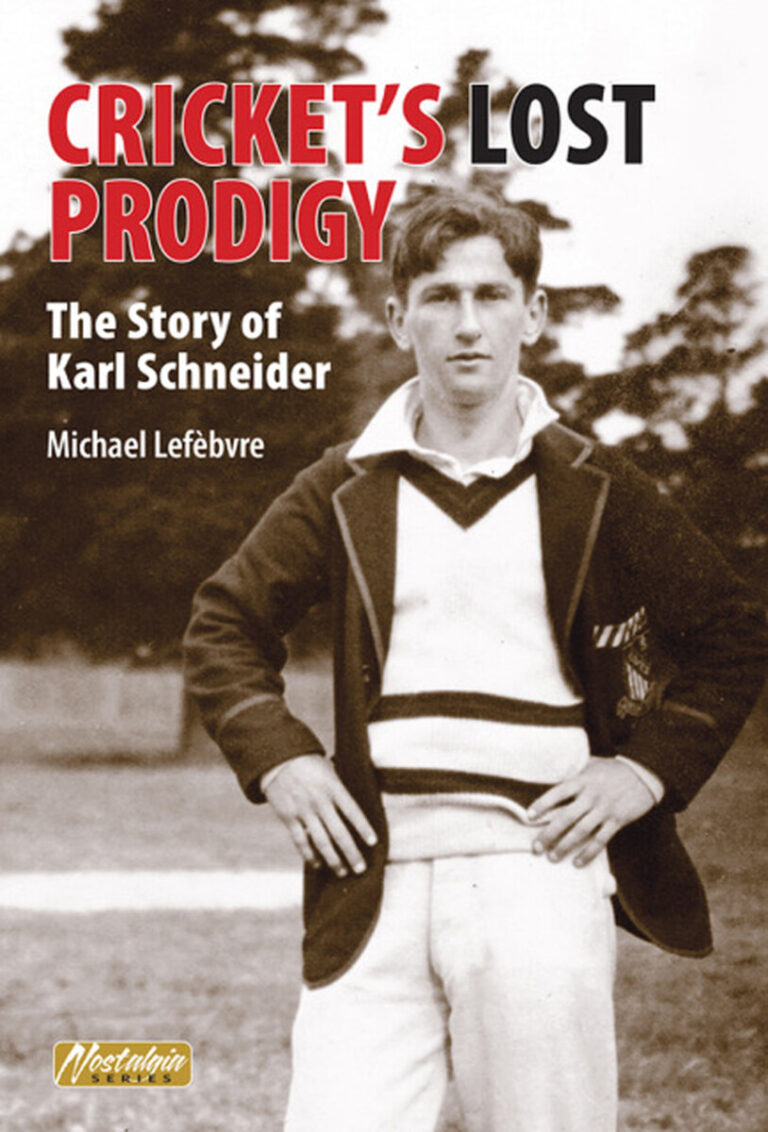Subtotal:
$13.75 (incl. tax)

In 1997, Cricket Tasmania had a staff of 12 and an annual turnover of $4 mill. Twenty years later, there is a staff of 60, a professional playing group and a turnover of $20 mill.
Tigers Roar tells the story of how a divided, cash-less cricketing backwater, shunned by mainlanders, rose in importance to produce the best batsman since Bradman and attract players so influential that the winning of silverware against the big boys became a habit.
 It’s a fascinating journey, beautifully presented in a not-too-heavy coffee table size and spiced by magnificent photography, both colour and mono which makes even casual delving a delight.
It’s a fascinating journey, beautifully presented in a not-too-heavy coffee table size and spiced by magnificent photography, both colour and mono which makes even casual delving a delight.
The text is alive and vibrant, the photographs wondrous and the scoresheets easy to read and relevant. There is also a section on Tasmanian records before the state’s admission into the Sheffield Shield.
Among my favorite photos are several of Golden Age hero Joe Darling, who moved to Hobart after his playing career ended and became a politician. He is pictured, aged 57, tossing the coin in his Australian cap, for New Town seconds against North Hobart. When some at the club dared question old Joe’s insistence on a tough physical regime, they were sent a message: ‘Bugger off.’
Earlier, having turned 50, he was talked into captaining the South against the North in the island’s famous intra-state competition.
Darling was to be awarded a CBE in 1938 for his services to community.
The photo of the 1948 meeting between Don Bradman’s Invincibles and a Tasmanian XI is also a beauty. And like almost every team picture — and there are dozens — it’s fully captioned.
Much is new to this reader, despite his direct Tasmanian ancestral roots.
Hero of the first Test Tom Kendall was to settle in Hobart and became a noted coach and player who on dismissing WG Grace in his farewell game in 1891, fell to his knees laughing. He’d made a substantial side-bet with mates and cleaned up big-time!
We learn that Ken Burn, a surprise choice for the 1896 Ashes tour, made seven 100s in seven innings in the immediate 1895-96 TCA season leading up to his selection. He was an absolute powerhouse with the Wellington club.
The multi-gifted Laurie Nash won Australian selection direct from the island after taking seven for 50 for Tasmania against South Africa in 1930-31.
The Richardson family was to produce seven first-class cricketers and remains the most significant in Tasmanian history.
For fun the family would go on tour, playing matches in various towns.
All Tasmania’s leading players and administrators are profiled, adding to the book’s versatility and readability. I do recommend it.
Thanks to the authors Mike Gandy, Rick Smith and Ric Finlay I do have some signed copies available, but please be quick. They are $50 plus post, from cricketbooks.com.au — KEN PIESSE
Never miss a sale or new release. Subscribe to cricketbooks.com.au

Cricketbooks.com.au is Australia’s number 1 website and online store for cricket publications and memorabilia. Coordinated by Ken Piesse – Author, Commentator, Public Speaker, and Publisher – cricket books has Australia’s largest range of both new releases and classic collectibles, cigarette cards, rare photographs, and much more.
PO Box 868
Mount Eliza, Victoria 3930, Australia
Mob: 0419 549 458
Tel: (03) 9787-8023
Email: kenpiesse@ozemail.com.au